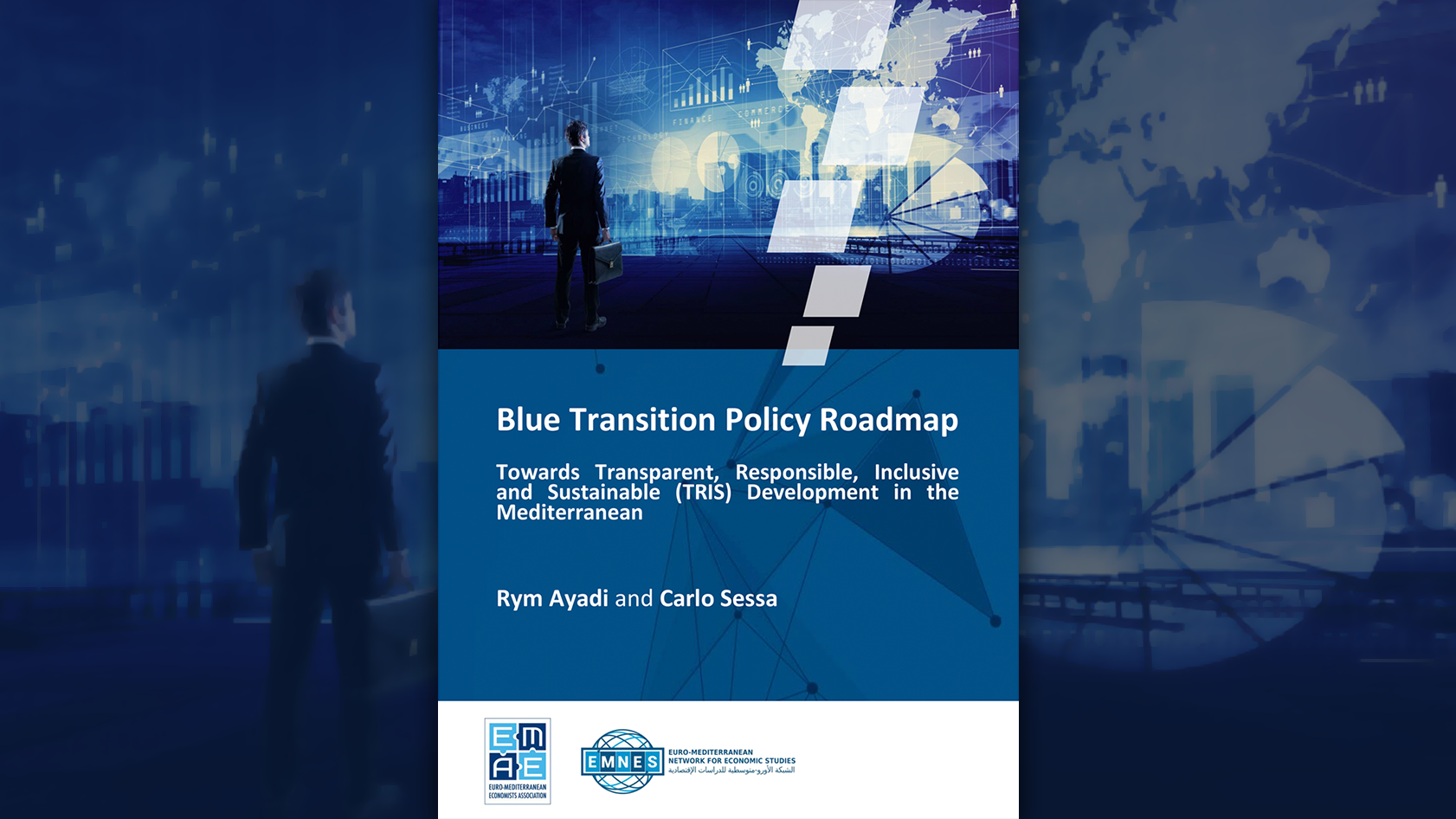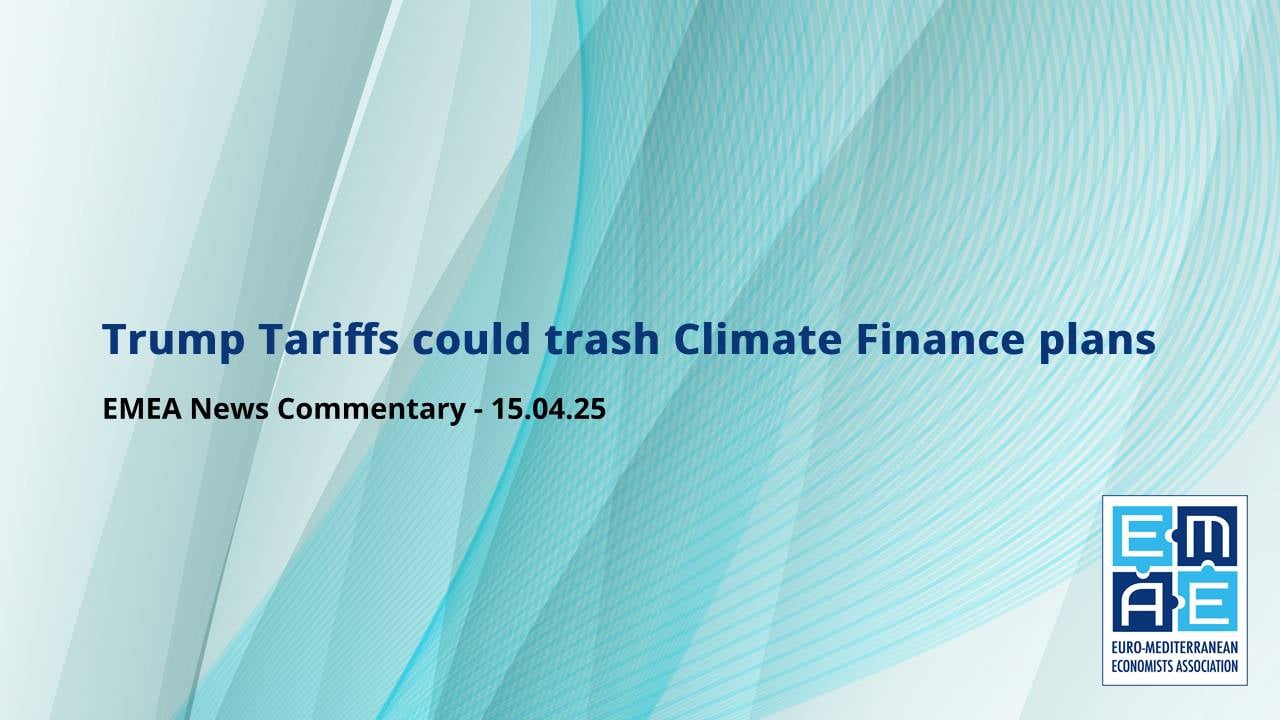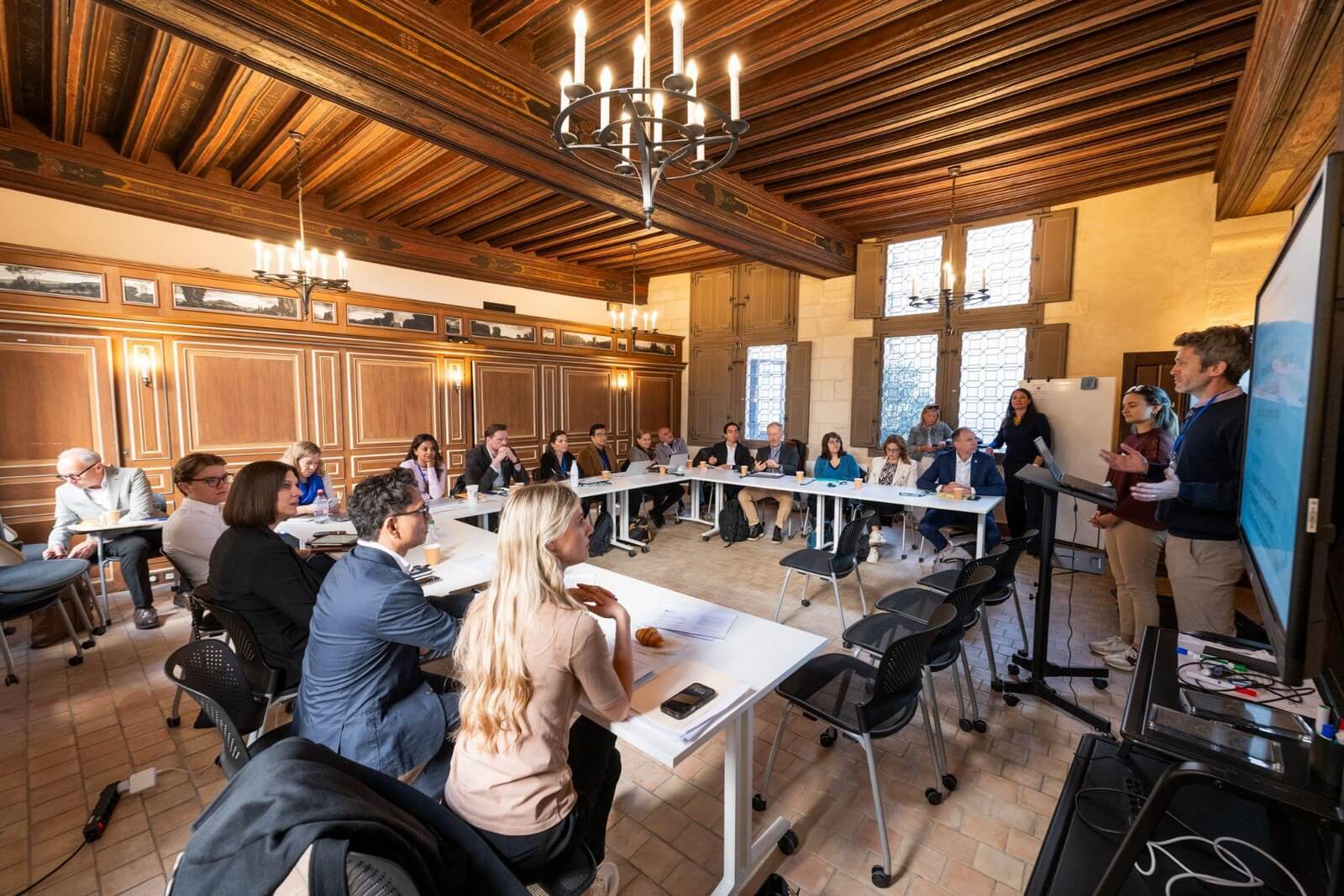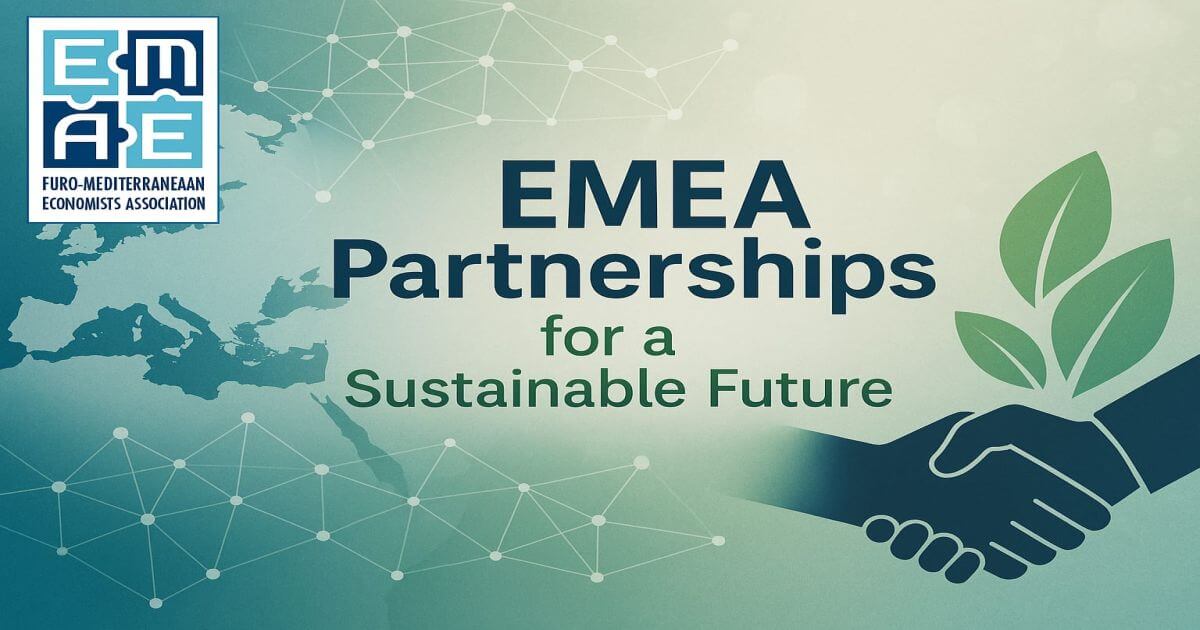EMEA and EMNES unveil Blue Transition Policy Roadmap towards Transparent, Responsible, Inclusive and Sustainable (TRIS) Development in the Mediterranean.
The Euro-Mediterranean Economists Association (EMEA) and the Euro-Mediterranean Network for Economic Studies (EMNES) have launched one of their most ambitious Studies to date – the Blue Transition Policy Roadmap towards (TRIS) Development Model in the Mediterranean and beyond.
Authored by Professor Rym Ayadi and Carlo Sessa of EMEA, and backed by a large collaborative team of EMNES researchers, the Study calls for the implementation of a strategic framework to accomplish TRIS over the coming decades.
The framework should focus on “thinking, imagining and implementing the future we want” to achieve Transparent governance, Responsible living, an Inclusive economy and Sustainable energy and environmental goals – the “TRIS-development” model.
This framework will guide policy responses to manage the short, medium, long-term challenges facing our economies and societies amidst the going global pandemic COVID-19.
The Study used the ‘Three Horizons’ methodology, engaging experts, stakeholders and citizens in a participatory foresight exercise to develop the so-called Blue Transition Scenario (BTS).
The BTS builds on three pillars:
- Dialogue across the different civilisations of the Mediterranean and beyond (e.g. Africa);
- Adherence to a common project ;
- Regional strategies and shared action plans for TRIS development model.
The second part of the collaborative exercise undertaken by EMNES partners and researchers discussed and drafted a comprehensive Policy Road Map, linking the work carried out in each policy area to the BTS.
The “Euro-Mediterranean sustainable co-development scenario”, labelled “Blue Transition”, was first introduced by the same authors in 2013, to explore the diversity of Euro-Mediterranean regions and sub-regions, built on the active contribution of people, civil society and universities. It also sought to encourage “the win-win policies” from each shore of the Mediterranean, emphasising the complementarities between all actors and regions.
EMNES researchers applied the TRIS development model to define the BTS for 2050. Based on three pillars supporting the future of the Mediterranean, BTS seeks: firstly, to promote a dialogue across the different civilisations in the Mediterranean; secondly, adherence to a common project – a Mediterranean partnership that addresses economic, social and environmental challenges; and thirdly, to build coordinated regional strategies and shared action plans for TRIS development model.
“More than a single narrative on the future of the Mediterranean, the Blue Transition Scenario is a process – potentially never-ending – to develop narratives of transparent, responsible, inclusive and sustainable development of the Mediterranean and beyond (e.g. Africa),” the Study asserts.
The common mission of the narrative is to raise “eco-system awareness” of the challenges and opportunities ahead for the whole Mediterranean – North, South and East – and beyond moving away from, what it describes as “current unsustainable developments.”
The Policy Road Map is presented in tabular format, outlining the main challenges for each policy area. The realisation of the Blue Transition Policy Roadmap followed on from an initial idea in the MEDPRO project and then continued with further work at EMNES. This culminated in the BTS Workshop in Piran, during late 2018. This process was then applied to develop the 2050 scenarios and to other EMNES policy areas, such as institutions, MSMEs, finance, labour, Science, Technology and Innovation (STI) and trade.
“The policy recommendations are offered here to stimulate future discussion and adoption of “Blue Transition” agendas and roadmaps – with a timeline for their implementation – with decision-makers and stakeholders in the region,” the Authors report.
This latest TRIS Study asserts that before, and since, the 2011 Arab uprisings, there has been a failure to maintain economic growth potential and to create the conditions for the emergence of regional value chains – allowing the private sector, particularly Micro, Small and Medium Sized Enterprises (MSMEs), to prosper, transfer technology, create decent and sustainable jobs for the educated.
Systemic failure requires rethinking of cooperation frameworks and integration schemes, to accommodate the emergence of regional value chains, as well as the creation of a Euro-Mediterranean industrial policy, the Study reports.
“Regional developments in the Mediterranean region and beyond must be put in the context of ongoing globalisation, digitalisation, automation and trends, external shocks and prospects,” the Study recommends, adding: “Global transitions, e.g. energy/environmental, digital, societal and governance, call for a coordinated strategic framework and policy agenda, in order to avert and to manage threats and, possibly, to benefit from the opportunities resulting from these speedy transitions.”
The BTS and the strategic foresight thinking stimulated by the TRIS development model could enhance our systems resilience to the emerging transitions and to respond to external shocks, such as the COVID-19 global pandemic. This pandemic hit the world starting from China’s Wuhan City, and propagating in an impressive speed to Europe, the Mediterranean, Africa and the globe. It has put under heavy pressure national health and economic systems and the models of regional integration and solidarity. As of 01 April 2020, the events of the COVID-19 are still unfolding. Further analysis by EMEA and EMNES teams will be performed to better assess the external shocks in general and COVID-19 in particular and the capacity of the countries and the region to withstand and remain resilient.
As a follow-up action, the fellow members of the research group from the EMNES participatory foresight exercise, are all now committed to the “Blue Transition” movement.
Ends
Note: EMNES is a network of research institutions and think-tanks working on socio-economics and policy in the Euro-Mediterranean. www.emnes.org
More information on MEDPRO project www.medpro-foresight.eu
For further information contact: Professor Rym Ayadi, President of EMEA and Director of EMNES, rym.ayadi@euromed-economists.org, info@euromed-economists.org





